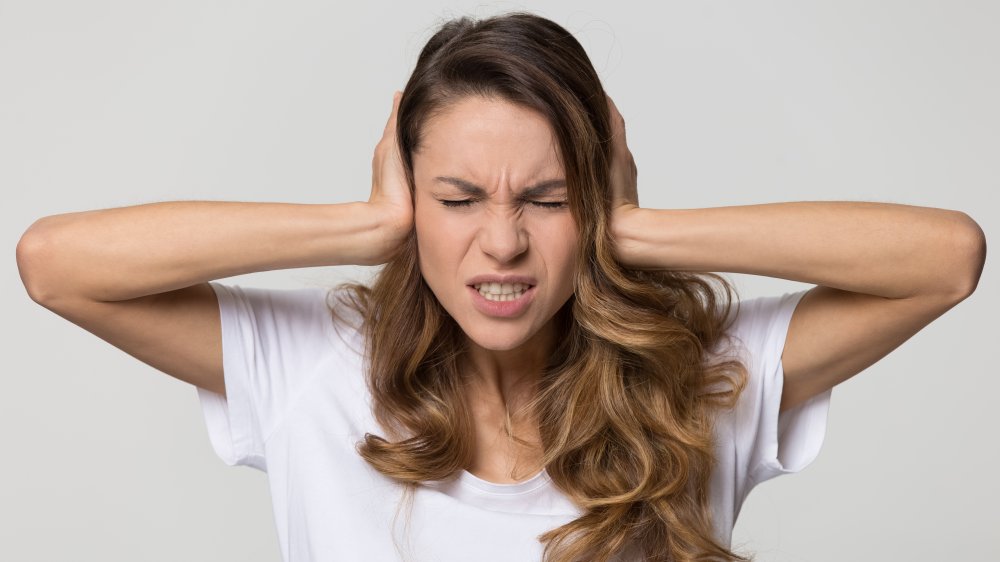Why We Hate The Sound Of Our Own Voice, According To Science
We hear ourselves talk all day long, and most of us don't give a second thought to the sound of our voice — until, that is, we hear it on a recording. Suddenly we cringe and sometimes even feel embarrassment over the way we sound. What's going on?
There's a simple reason why the sound of our own voice can be so off-putting, and it has everything to do with resonance. According to The Healthy, when someone else talks, we're hearing their voice travel across the air and into our ear canal, landing on the eardrum. The eardrum vibrates, which causes tiny hairs deep in the inner ear to move. The movement is converted into electric signals that travel to the brain, which interprets them as sound.
When we speak, that same process happens, but there is another layer. The sound of our voice also travels through the bones in our head and our sinuses to our brain, resulting in a richer, more resonant sound. Martin Birchall, professor of laryngology at University College London, told TIME the way sound travels through our head can be compared to a cave complex.
Our voice is connected to our sense of self
But the disappointment we often feel upon hearing our own voice has more to do with our self-perception than anything else. According to The Guardian, we all carry expectations about how we're presenting ourselves to the world. When a person's voice is played back to them, they're confronted with something researchers call "extra-linguistic cues." These are the subtle emotions we express in speech that we're often not even aware we're communicating. Facing the reality of how we communicate can leave a person feeling surprised — or even vulnerable.
The good news is it's likely nobody else is judging your voice as harshly as you are. But if the way you hear yourself is really a problem there are things that can be done to alter your voice. Things like public speaking or singing lessons can provide tips on ways to utilize your breath and throat to change the timbre of your sound. Or, to get over the cringe-factor of hearing yourself on recordings, just try listening to more of them. The more exposure you have to your own voice, the less shocking it will be.


